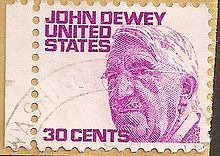
Neuroscience is the scientific study of the nervous system, its functions and disorders. It is a multidisciplinary science that combines physiology, anatomy, molecular biology, developmental biology, cytology, psychology, physics, computer science, chemistry, medicine, statistics, and mathematical modeling to understand the fundamental and emergent properties of neurons, glia and neural circuits. The understanding of the biological basis of learning, memory, behavior, perception, and consciousness has been described by Eric Kandel as the "epic challenge" of the biological sciences.
Psychology is the study of mind and behavior. Its subject matter includes the behavior of humans and nonhumans, both conscious and unconscious phenomena, and mental processes such as thoughts, feelings, and motives. Psychology is an academic discipline of immense scope, crossing the boundaries between the natural and social sciences. Biological psychologists seek an understanding of the emergent properties of brains, linking the discipline to neuroscience. As social scientists, psychologists aim to understand the behavior of individuals and groups.

Sigmund Freud was an Austrian neurologist and the founder of psychoanalysis, a clinical method for evaluating and treating pathologies seen as originating from conflicts in the psyche, through dialogue between patient and psychoanalyst, and the distinctive theory of mind and human agency derived from it.

Carl Gustav Jung was a Swiss psychiatrist, psychotherapist and psychologist. After ending a period of collaboration with Freud and involvement in the early psychoanalytic movement he went on to found the school of analytical psychology. He was a prolific author, illustrator, and correspondent, and a complex and controversial character, perhaps best known through his "autobiography" Memories, Dreams, Reflections.
In psychoanalysis and other psychological theories, the unconscious mind is the part of the psyche that is not available to introspection. Although these processes exist beneath the surface of conscious awareness, they are thought to exert an effect on conscious thought processes and behavior. Empirical evidence suggests that unconscious phenomena include repressed feelings and desires, memories, automatic skills, subliminal perceptions, and automatic reactions. The term was coined by the 18th-century German Romantic philosopher Friedrich Schelling and later introduced into English by the poet and essayist Samuel Taylor Coleridge.

Cognitive neuroscience is the scientific field that is concerned with the study of the biological processes and aspects that underlie cognition, with a specific focus on the neural connections in the brain which are involved in mental processes. It addresses the questions of how cognitive activities are affected or controlled by neural circuits in the brain. Cognitive neuroscience is a branch of both neuroscience and psychology, overlapping with disciplines such as behavioral neuroscience, cognitive psychology, physiological psychology and affective neuroscience. Cognitive neuroscience relies upon theories in cognitive science coupled with evidence from neurobiology, and computational modeling.

Dream interpretation is the process of assigning meaning to dreams.
Psychoanalytic theory is the theory of personality organization and the dynamics of personality development relating to the practice of psychoanalysis, a clinical method for treating psychopathology. First laid out by Sigmund Freud in the late 19th century, psychoanalytic theory has undergone many refinements since his work. The psychoanalytic theory came to full prominence in the last third of the twentieth century as part of the flow of critical discourse regarding psychological treatments after the 1960s, long after Freud's death in 1939. Freud had ceased his analysis of the brain and his physiological studies and shifted his focus to the study of the psyche, and on treatment using free association and the phenomena of transference. His study emphasized the recognition of childhood events that could influence the mental functioning of adults. His examination of the genetic and then the developmental aspects gave the psychoanalytic theory its characteristics.

Analytical psychology is a term coined by Carl Jung, a Swiss psychiatrist, to describe research into his new "empirical science" of the psyche. It was designed to distinguish it from Freud's psychoanalytic theories as their seven-year collaboration on psychoanalysis was drawing to an end between 1912 and 1913. The evolution of his science is contained in his monumental opus, the Collected Works, written over sixty years of his lifetime.

A neuroscientist is a scientist who has specialised knowledge in neuroscience, a branch of biology that deals with the physiology, biochemistry, psychology, anatomy and molecular biology of neurons, neural circuits, and glial cells and especially their behavioral, biological, and psychological aspect in health and disease.
In psychology, the subconscious is the part of the mind that is not currently of focal awareness.
Psychology is defined as "the scientific study of behavior and mental processes". Philosophical interest in the human mind and behavior dates back to the ancient civilizations of Egypt, Persia, Greece, China, and India.
Depth psychology refers to the practice and research of the science of the unconscious, covering both psychoanalysis and psychology. It is also defined as the psychological theory that explores the relationship between the conscious and the unconscious, as well as the patterns and dynamics of motivation and the mind. The theories of Sigmund Freud, Carl Gustav Jung, and Alfred Adler are all considered its foundations.
This article is a compiled timeline of psychotherapy. A more general description of the development of the subject of psychology can be found in the History of psychology article. For related overviews see the Timeline of psychology and Timeline of psychiatry articles.

Psychodynamics, also known as psychodynamic psychology, in its broadest sense, is an approach to psychology that emphasizes systematic study of the psychological forces underlying human behavior, feelings, and emotions and how they might relate to early experience. It is especially interested in the dynamic relations between conscious motivation and unconscious motivation.
In psychology, the psyche is the totality of the human mind, conscious and unconscious.
Energy is a concept in some psychological theories or models of a postulated unconscious mental functioning on a level between biology and consciousness.

Ivan Mikhaylovich Sechenov was a Russian psychologist, physiologist, and medical scientist.
This is a timeline of the modern development of psychiatry. Related information can be found in the Timeline of psychology and Timeline of psychotherapy articles.










